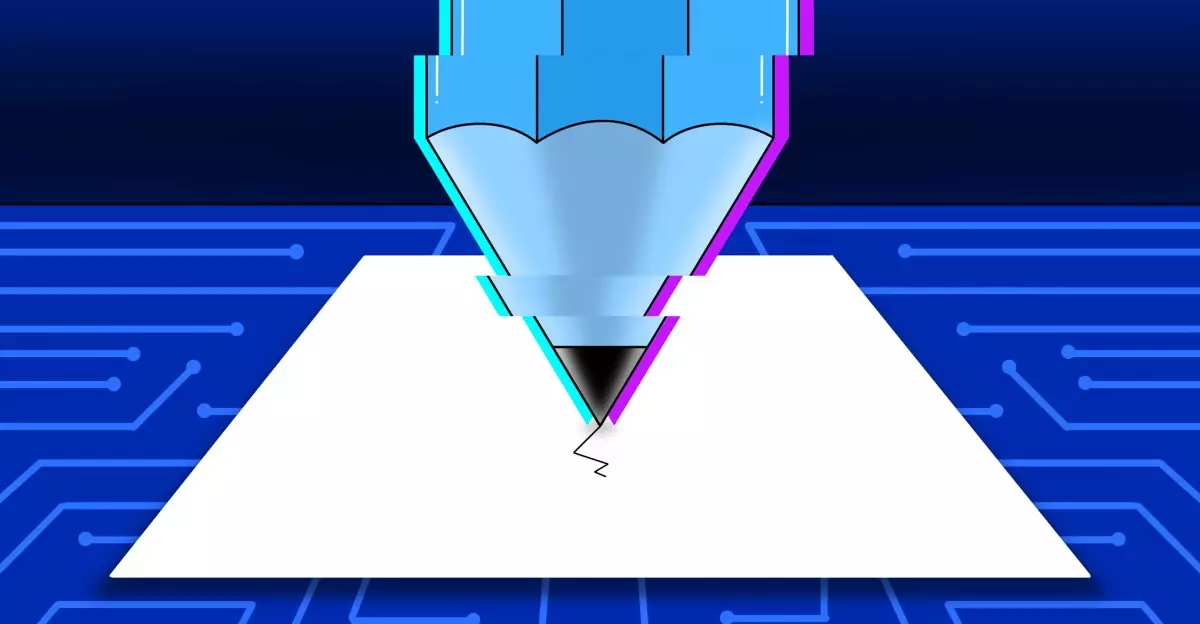The burgeoning field of artificial intelligence (AI) has ushered in an era of remarkable advancements but also spurred fierce competition among global superpowers. As institutions like OpenAI and Google rally behind efforts to train their AI models on copyrighted content, they frame their argument not just as a business imperative but as a matter of national security. The stakes are high in this race, especially as competitors like China push forward with unregulated access to vast data pools. OpenAI’s position is that the U.S. must secure its lead in AI technology, or risk being overtaken—a sentiment that raises serious ethical concerns and questions about innovation strategies.
The Fair Use Dilemma
The fundamental question OpenAI and Google present is whether copyright protections should be modified in light of technological evolution. Their proposal posits that current fair use doctrines need to adapt to the demands of AI development. By even framing the conversation around national security, they’re essentially tying the fate of their innovations to legal frameworks that dictate how data is accessed and utilized. However, this notion of redefining fair use for the sake of competition raises a fundamental issue: Should we prioritize technological advancement at the potential expense of the rights of content creators?
The claims that unlimited access for AI firms would foster better models while stifling foreign competitors paints a picture of a delicate balance between innovation and intellectual property rights. Most creators and content owners would argue that their work and its associated value should not be sacrificed for rapid technological growth. After all, it is through creators that much of the data used for training AI is generated. By circumventing copyright protections, do we risk devaluing the very content that makes AI possible in the first place?
The Broader Implications for Rights Holders
Moreover, the proposals from OpenAI and Google come at a time when these companies are under increasing scrutiny for their data-gathering practices. Allegations of data scraping from copyrighted materials are rampant, with notable entities like The New York Times and even celebrities stepping forward with lawsuits against these tech giants. The ethical implications of using copyrighted work for AI training without compensating the creators point to a troubling precedent: if we consider it acceptable to weaken copyright laws for the “greater good,” can we then justify similar measures in other sectors?
Anthropic, another player in the AI landscape, has taken a more methodical approach by advocating for a national security assessment system tailored for AI models. This perspective shifts the focus away from copyright issues—proposing instead that the U.S. government should evaluate AI technologies for their potential risks, thereby offering a safeguard against misuse. While this is certainly a necessary discourse, one wonders if it sufficiently addresses the core issue of creators’ rights.
Competition Versus Collaboration
Instead of competing to claim vast swathes of data under the guise of national security, a more collaborative approach could yield a healthier environment for innovation. By engaging with content creators and establishing transparent channels for data use, AI companies could foster an ecosystem that benefits all parties. After all, innovation thrives in environments where creators are respected and compensated fairly for their contributions. Intellectual property laws exist for a reason—they safeguard the labor and creativity that fuel new technologies.
Failure to address these issues may lead to a dangerous precedent where technological monopolies sideline the voices of individual creators. If AI firms focus on expanding their capabilities without regard for the risks they pose to intellectual property, they not only jeopardize public trust but set the stage for potential backlash that could stifle innovation in the long run.
The Future of AI: A Call for Responsible Practices
As companies like OpenAI and Google continue to push boundaries in AI development, the conversations surrounding copyright and fair use cannot be sidelined. With every stride made in technology, there must also be a collective introspection about its societal impact. The challenge ahead lies not just in engineering advancements but in forging an ethical framework that supports both innovation and the rights of all stakeholders involved. Only then can we hope to build a future in which AI thrives without sacrificing the very foundation of creativity upon which it stands.

